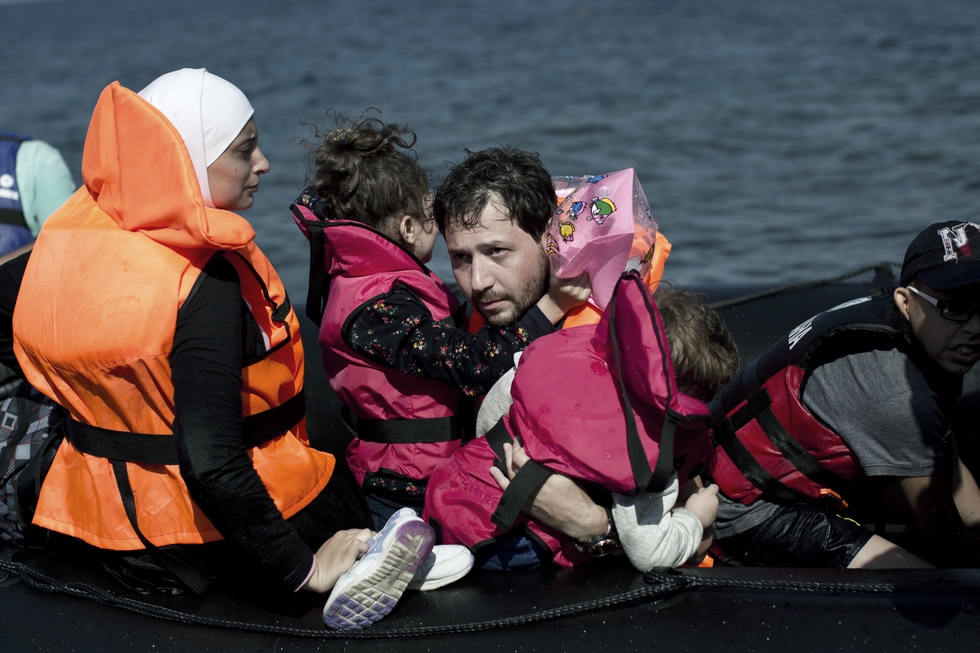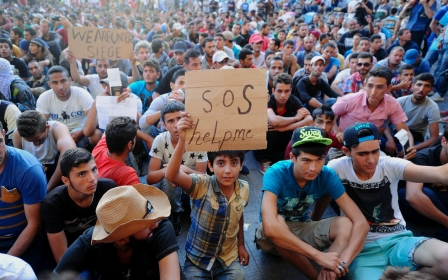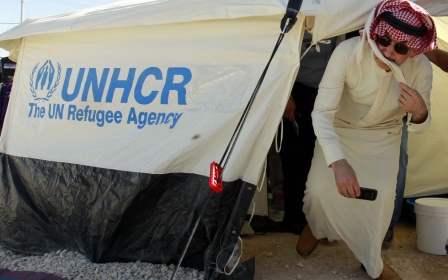Islamic State joins Syria's Assad in warning against fleeing to the West

The Islamic State (IS) militant group has warned Syrian refugees against seeking to flee to the West, saying it would be a "dangerous major sin" to take children to a place where "they are under the constant threat of fornication, sodomy, drugs and alcohol".
"Sadly some Syrians and Libyans are willing to risk the lives and souls of those whom they are responsible to raise... sacrificing many of them during the dangerous trip to the lands of the war-waging crusaders," said the latest issue of group's propaganda English-language magazine Dabiq.
IS's magazine warning against seeking refuge in the West coincided with articles – and religious edicts - in media outlets supportive of Syrian President Bashar al-Assad, warning refugees against fleeing towards Europe.
The Syrian government is also reportedly working to prevent Syrian youth from illegally leaving the country, as they are needed to build the country.
There were also unsubstantiated media reports that the Syrian government will confiscate the properties of Syrians who are outside the country for more than six months, because they are needed for the military service.
Such reports were shared on social media by Syrians living inside government-controlled areas as well as in places outside Assad's control.
It remains unclear, however, if they were meant to scare Syrians in government-controlled areas against fleeing or if they had been fabricated by critics of the Syrian president.
In July 2013, the Syrian president himself warned that "terrorism" will make its way into Europe via illegal immigration, in an apparent reference to refugees fleeing Syria.
Fears that some militants might make their way to Europe by disguising themselves as refugees have been raised in some newspaper reports, although exaggerating such prospects tends to come from anti-immigrant politicians:
In an op-ed published in the British newspaper the Daily Telegraph, the migration spokesman for the United Kingdom Independence Party (UKIP), Steven Woolfe, called for supporting Assad as a solution to ending the refugee crisis.
"We must reinstate Assad, however bad of a person he is, as the leader of Syria again to restore stability and to topple IS, but with certain strict clauses, such as regular, fair, democratic elections, international cooperation with the United Nations," wrote Woolfe.
"In return, we should drop the war crimes and we actually start to rebuild Syria and as an international community we must provide the funding for such an essential cause," added Woolfe, who is also a member of the European Parliament.
Israel's view
Blaming the influx of refugees to Europe on IS or other militants was also put forward by some politicians in the Middle East, most notably Israeli Prime Minister Benjamin Netanyahu, who also expressed suspicion of the refugees.
"We will not allow Israel to be submerged by a wave of illegal migrants and terrorist activists," Netanyahu said when he was asked by the Israeli opposition to take in refugees.
"Because of the onslaught of militant Islam in the Middle East and in Africa, Europe is facing the waves, a tsunami of people tragically fleeing from the worst crimes that humanity has seen since the Holocaust," Netanyahu recently charged.
Such remarks have angered many Syrians who say that the number one cause of the refugee crisis is the same party that has inflicted the highest civilian casualities, i.e. the Assad government.
New MEE newsletter: Jerusalem Dispatch
Sign up to get the latest insights and analysis on Israel-Palestine, alongside Turkey Unpacked and other MEE newsletters
Middle East Eye delivers independent and unrivalled coverage and analysis of the Middle East, North Africa and beyond. To learn more about republishing this content and the associated fees, please fill out this form. More about MEE can be found here.




